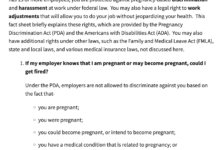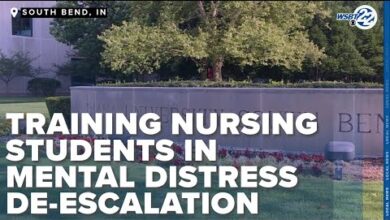A-Level results day: nursing numbers down in England

The number of people who have accepted an offer to study nursing across the UK has very slightly increased from last year, but numbers are down in England and a decline in mature students has also caused concern.
Today (15 August), thousands of college and sixth-form students collected their A-Level results.
“Nurse recruitment policy is failing right in front of our eyes and a workforce crisis is deepening”
Patricia Marquis
To coincide with results day, the Universities and Colleges Admissions Service (UCAS) has published its latest acceptance figures for degree courses.
UCAS’ figures showed that 18,450 students have now accepted an offer to study nursing for 2024-25, while 3,140 accepted an offer to study midwifery.
The nursing figures represented a 0.8% increase on 2023, when the number stood at 18,300.
However, the 2024 number is a decrease of 12.7% on 2022 and an 18.7% decrease from the 2021 peak of 22,690.
The UCAS data also showed a significant decline in mature students, defined as those aged 21 or over, for this coming academic year.
In 2021, when applications and acceptances peaked, 13,140 mature students accepted offers to study nursing across the UK.
This has fallen by almost a quarter (24%) to 9,980 in 2024.
Meanwhile, England was the only country in the UK to see a decline in acceptances across all age groups, from 14,010 in 2023 to 13,870 in 2024.
The 2021 figures for England were 20% higher than the number of acceptances for this year.
Wales, however, saw a 22.5% increase in the number of students accepting nursing courses, from 800 in 2023 to 980 in 2024.
There was also an increase in nursing acceptances in Scotland, from 2,850 to 2,960, while in Northern Ireland the number remained the same at 640.
Similarly, Wales, Northern Ireland and Scotland saw modest increases in the number of midwifery acceptances.
However, the number for England fell between 2023 and 2024. As a result, UK-wide midwifery acceptance figures dropped by 1.3%.
In response to the figures for England, the Royal College of Nursing (RCN) aired concerns about the future of the nursing workforce and said the UCAS figures showed recruitment was “still going backwards”.
The 2023 NHS Long Term Workforce Plan included ambitious targets for nurse recruitment, which were in part predicated on an increase in student intakes which have not, as yet, materialised.
The RCN pointed to the fact nurse students have had to pay tuition fees since 2017, and called on the government to ease the financial burden of studying the professions at university.

Patricia Marquis
RCN England executive director Patricia Marquis said: “Every student accepted onto a nursing course today is starting the journey towards an incredible and fulfilling career, but the reality is we need many, many more to do the same.
“The numbers joining the profession have fallen once again, down 20% in just three years. Nurse recruitment policy is failing right in front of our eyes and a workforce crisis is deepening.”
Ms Marquis called on politicians to introduce “proper financial incentives” to make nursing more appealing and “viable” for prospective students.
She added: “That must include government-funded degrees, universal living maintenance grants and action to improve pay and conditions for those who qualify.”
The “devastating collapse” in mature students joining nursing was described by Ms Marquis as being of particular concern.
“Their rich life experiences make them ideal for nursing, but they are being put off by massive debt and a system that provides little financial support for people who often have caring duties of their own,” she said.
“The country is already short of these vital public service professionals”
Rachel Hewitt
Meanwhile, Rachel Hewitt, chief executive of university membership organisation MillionPlus, also raised concern about the drop in mature students in nursing.
“It is troubling that the number of people applying to study teaching is down and nursing, despite a slight increase this year, is still down on the peak of a few years ago,” she said.
“Nursing is a traditionally popular course among mature students, a cohort that continues to see a worrying decline in applications.
“The country is already short of these vital public service professionals; the fact that prospective students appear to be turning away from these subjects should concern the government.
“Action is required and soon to ensure that these courses remain attractive and to maintain a healthy pipeline of skilled trainees into these professions.”
Earlier this week, in an attempt to drum up interest among A-Level result recipients, chief nursing officer for England Duncan Burton encouraged anyone entering UCAS’ clearing process to consider a healthcare degree, or degree apprenticeship.
Today, as A-Level results were being opened, other NHS leaders did the same.
Mel Coombes, chief executive of Coventry and Warwickshire Partnership NHS Trust, said: “For those who are still deciding on their next steps or perhaps rethinking their original choices, I would urge you to consider applying for a nursing or allied health professionals course through UCAS clearing, and to search NHS careers to find out more.”
The 2024-25 student recruitment cycle remains open, with UCAS due to be releasing further updates throughout August.







